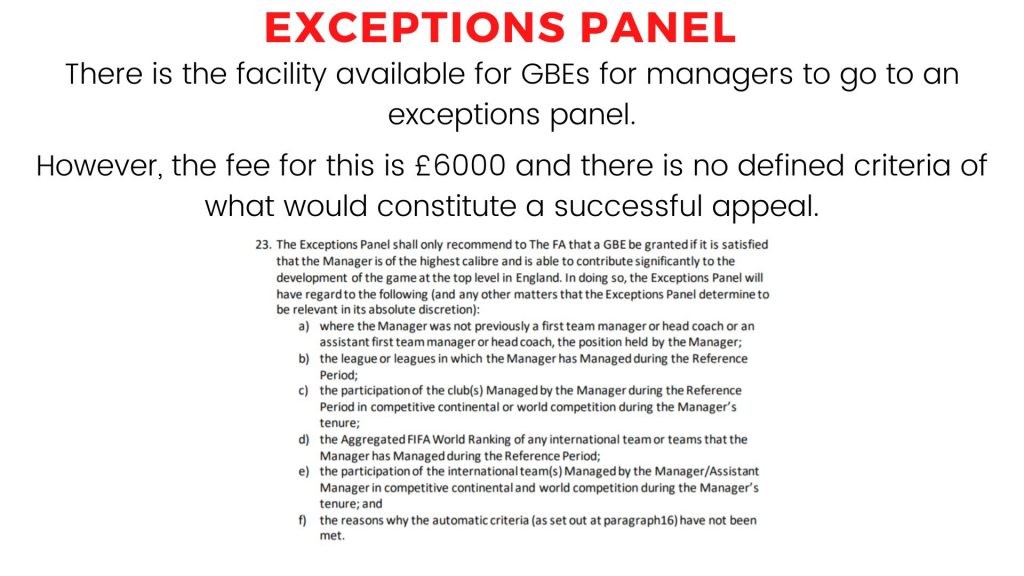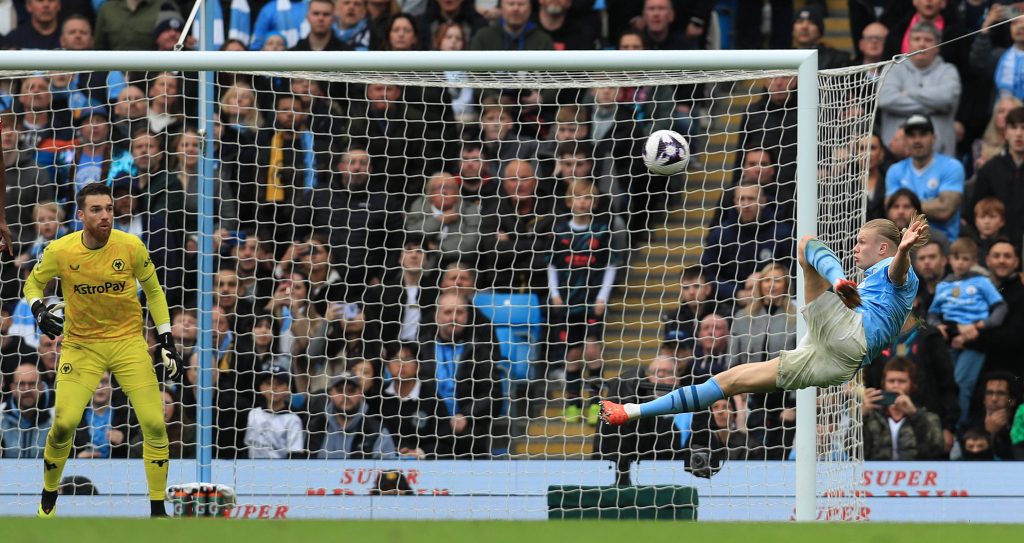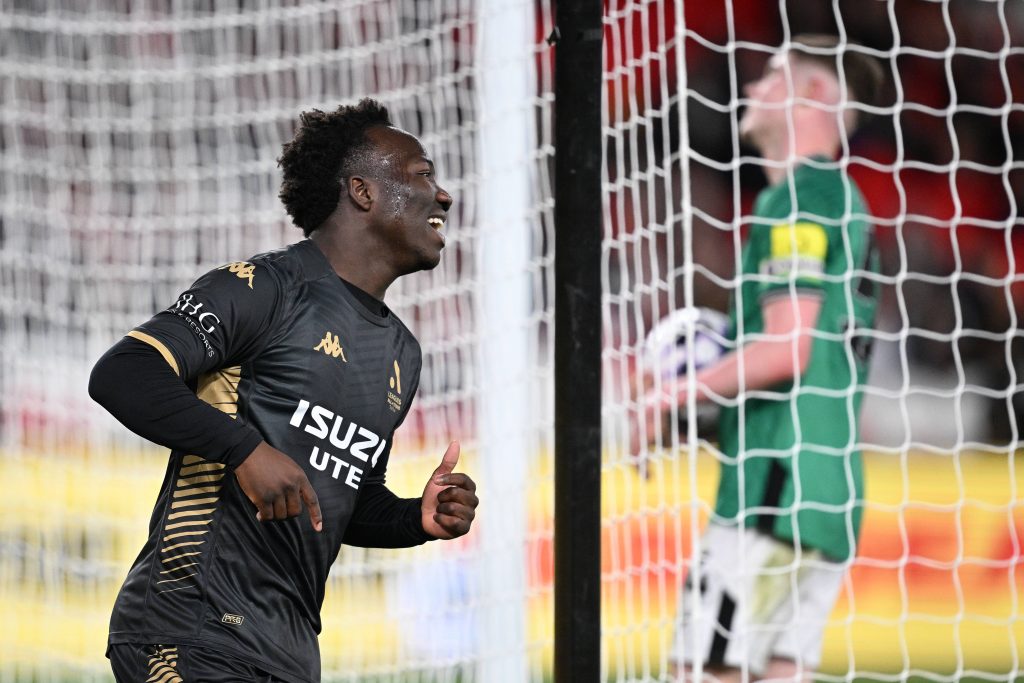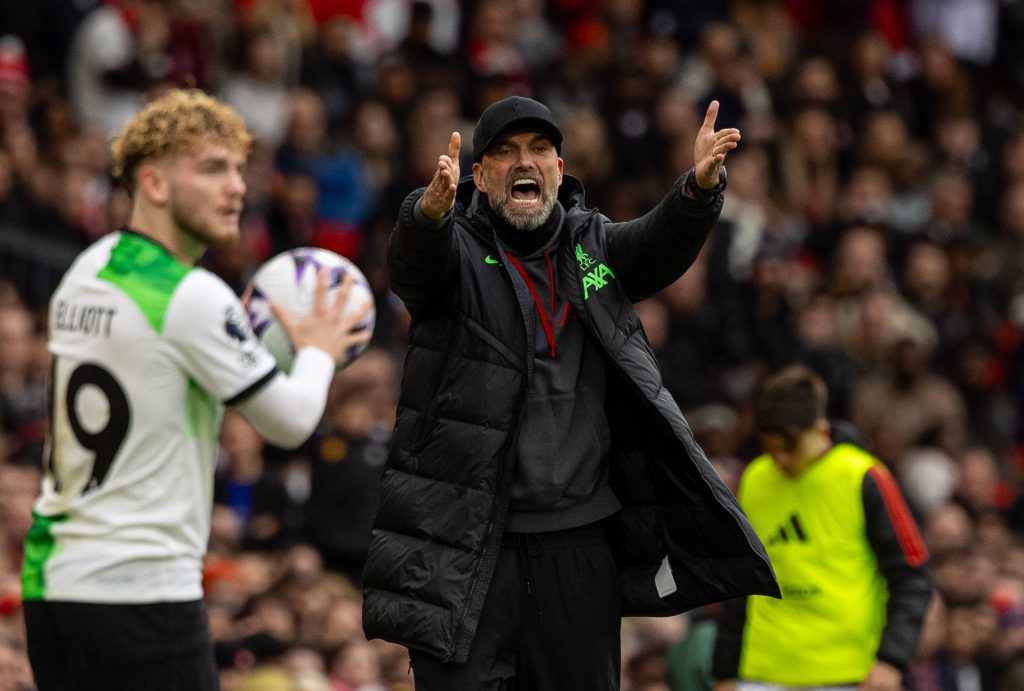Andy Watson delves into the GBE regulations for non-playing staff in a post-Brexit landscape.
It’s that time of year when football clubs might be feeling a little nervous about their head coaches. Either expectations have been dashed and a re-think is required, your manager’s contract is up for renewal or your manager is hot property and likely to be nicked by one of the bigger boys. In all of these scenarios, fans would hope that their club has plans in place to make the right call.
Of course, fans are always happy to help the decision makers with their processes. The forums are awash with names and ideas as to how to take their club forwards. Often, in the modern game, there will be a fan, or a group of fans, who floats the idea “They should be looking into the foreign market for a manager.”
Ever since Dr. Jozef Venglos appeared in the Villa Park dugout in 1990, the doors of the top flight have been opened up to expertise away from British shores. It may have taken a while for the process to sort itself out but starting with the likes of Arsene Wenger, the Premier League became more and more attractive to foreign managers to the extent that now the majority of managers (or head coaches) appointed in the English top division are of foreign nationality.
Even in the Championship, we see managers appointed from jobs all over Europe. Barnsley, in particular, have demonstrated that there is a wealth of talent to be mined in Europe and have used their research in this area to good effect when appointing Daniel Stendel, Gerhard Struber, and Valerien Ismael, to bring them from League 1 to the Championship playoffs. The appointment of Markus Schopp hasn’t worked out, of course, and now Poya Asbaghi is working hard to stave off relegation for the Tykes.
To go into Europe for five consecutive appointments demonstrates a commitment to that approach and it allows fans and decision makers from other domestic clubs from lower down the leagues to look over at that process and wonder “Should we be looking into this?”
Assessing the quality of a manager—or head coach—accurately is not an easy task. For many, it is a simple case of a person’s achievements, win percentage, signings made under their charge, perceived style of play, and, most of all, results. Even more so, recent results.
In the dim, distant past of football club management it may well have been that those visible aspects of a manager’s performance, alongside their “contacts book”, interview technique, and their “image” was what clubs would use to decide on a managerial appointment. Thankfully, we now have more data available, one being our Coach ID service which helps clubs align their own criteria with objective assessment methods to find the right coaches for the right situations.
The Barnsley example demonstrates that, rather than debates about foreign coaches vs British coaches, what is more important is the right style of coach for the approach of the club. It is often discussed in player recruitment that shortlisting players should take into account the style that the club wants to adopt. Surely this is even more important when recruiting a manager. The question that we want to address in this piece is: are those managers still available after Brexit?
What are the GBE regulations for managers and head coaches?
In this series, we have already covered the basics of the Government Body Endorsement (GBE) regulations that govern work permits for non-UK citizens. There are a separate set of regulations for clubs to consider when hiring a manager that would require a work permit to work in the UK. Previous to the GBE regulations, any manager or head coach with an EU passport was free to be appointed by a UK club as long as they had the required qualifications (which were also required for UK-resident coaches).
As with the regulations for players, the FA tweak the rules fairly regularly. The following information is correct at the time of writing but the FA have advised that a new document will be produced to advise for the summer window of 2022.
The essence of the regulations for coaches and managers is as follows: an individual will successfully receive a GBE if they have “had overall responsibility for” a team, or multiple teams, for 3 years in total, or 2 consecutive years, in a Band 1-5 league.
Here are those bands as determined by the GBE regulations:

There are also specific regulations that cover international managers’ eligibility in particular:

Unlike for the players, there is no “points” requirement. There is also no differentiation in the first place between managing in Band 1 as compared to Band 5.
It’s also important to note that managers or coaches will only receive a GBE if they have a UEFA Pro Licence (or equivalent), if the club they are joining has no manager at that point in time, and if they are being given clear overall responsibility for the first team of the club they are joining.
How this looks in practice
Under these regulations, it is clear that there will be substantial restriction in the market for clubs. Let us take two recent high-profile appointments in the Premier League to provide an example of how the criteria work in real situations.
Antonio Conte was appointed by Tottenham Hotspur in November 2021. Though the Italian was out of work, he had the requisite UEFA Pro Licence, Tottenham had no manager having dismissed Nuno Espirito Santo in October, and he had managed in a Band 1-5 league for four seasons of the previous five (two in the Premier League for Chelsea and two in Serie A for Inter). On this basis, Antonio Conte was granted a GBE by the FA, and as a result, was eligible for a UK work permit.
Ralf Rangnick was appointed as interim manager by Manchester United in November 2021. The German had the requisite qualifications and Manchester United had no manager. However, Rangnick’s last position as head coach or manager of a team was a one-season stint at RB Leipzig 2018-2019. He had no other season as a manager in the qualifying period. As a result, the FA could not automatically grant Rangnick a GBE.
In this instance, Manchester United asked for an exceptions panel appointment. This exceptions panel functioned in the same way as the players’ exception panel which comes into effect when they fail to reach the 15 point threshold. In these cases, a facility is made for a club to convince a panel of lawyers and professionals in the football industry that the candidate is “of the highest calibre and able to contribute significantly to the development of the game at the top level in England.”

Manchester United were obviously able to convince the panel that Rangnick fulfilled the criteria – it was likely a relatively easy case to make. Rangnick’s reputation in the game is such that appointing him to a job in this country is likely to make a positive contribution to the game.
However, the criteria are exceptionally vague. When a club of lower stature than Manchester United want to appoint a head coach of “lower repute” that doesn’t fulfil the initial criteria it could be very difficult to know whether the exceptions panel process will work in their favour or not.
The influence of the GBE regulations since January 2021
The GBE regulations were brought into action for the January window in 2021. The first appointment of a manager under the regulations was on the 1st January with Jimmy Floyd Hasselbaink returning to work with Burton Albion in League One.
Intriguingly, this is a difficult appointment to look into. If the paperwork was filed before the GBE regulations came into effect, then obviously there is no issue. But Hasselbaink is a citizen of the Netherlands, has lived in the UK for a long time, and indeed, has worked in the UK for most of his professional life. However, ostensibly, given the facts at our disposal, it would appear that an appointment like this should have to go through to an exceptions panel.
Hasselbaink’s appointment included, of all of the current managers in the Premier League and EFL (remember, the GBE regulations don’t apply in non-league) only nine managers had to go through the GBE process since the regulations were enforced. 23 appointments have been made in that time in the top two tiers in England, so 39% of appointments in the Premier League and Championship have gone to people who require a work permit. It is impossible to know how many other foreign nationals were considered for the other roles.
Managers appointed since 1st January 2021 who required a work permit:
- Thomas Tuchel (Chelsea – January 2021)
- Bruno Lage (Wolves – June 2021)
- Marco Silva (Fulham – July 2021)
- Patrick Vieira (Crystal Palace – July 2021)
- Antonio Conte (Tottenham – November 2021)
- Poya Asbaghi (Barnsley – November 2021)
- Ralf Rangnick (Manchester United – November 2021)
- Shota Arveladze (Hull City – January 2022)
- Jesse Marsch (Leeds United – February 2022)
Looking at how these managerial appointments came through the GBE process is interesting:

Five of the managers had 3 years of enough experience with most of them picking it up at the Band 1 level of leagues. This is not a huge surprise. All of the appointments above are for Premier League and Championship clubs and experience is certainly something that would be valued in those roles.
Bruno Lage and Poya Asbaghi are younger coaches who don’t necessarily have the length of experience as a manager with overall responsibility for senior teams, but importantly, both had the required 2 years consecutive tenures with teams in qualifying leagues: Asbaghi in Sweden and Lage with a top Portuguese club.
Shota Arveladze doesn’t actually have any of the designated criteria fulfilled. We already spoke about Ralf Rangnick and his likely impact on the game based on his history in the game. Although Arveladze had a stellar playing career, his managerial career hasn’t yet had the impact that would obviously get through the exceptions panel.
The Georgian was very successful in Uzbekistan, winning the league and cup double and lasting two seasons. However, this all took place in a Band 6 league. Previously, Arveladze had performed relatively poorly in Turkey and Israel and had not managed the requisite time in those leagues regardless of them being outside of the timeframe of the last five years anyway.
As a result, it’s unclear how Shota Arveladze attained his work permit which calls into question the validity of the system. If a club really wants a manager that doesn’t automatically pass the criteria it may well be worth going to the Home Office either via the exceptions panel or perhaps ahead of time to see what would be required to get the target a work permit. It certainly seems to have worked for Hull City and their owners.
Potential managers who could be targeted by British clubs
Analytics FC’s Coach ID service allows clients to profile and track some of the most exciting and interesting coaches around the world. There are some great prospects coaching in Bands 1-5 with the requisite experience to get a GBE from the FA.
Whilst Coach ID also looks in-depth at a range of coaching performance trends at both a team and player development level as well as squad management behaviours, it’s always interesting to take a quick glance at coaching styles and on-pitch outputs.
Here are a few names that Coach ID has identified as potential options for UK clubs:
Thomas Letsch (53) – Vitesse – German
A member of the Red Bull school of coaching, having been a youth coach at RB Salzburg and FC Liefering (the unofficial RB Salzburg finishing school) from 2013-2017, Thomas Letsch has blossomed since moving out on his own.
The German has had a positive impact on underlying metrics at both Vitesse and Austria Wien so is a proven performer at multiple clubs and in different leagues. His style is high pressing and circulation-heavy, as we would expect from a Red Bull graduate.
This visualisation produced for our Coach ID service shows Letsch’s stylistic tendencies against clubs in the top and bottom half of the table respectively:
Under Letsch’s tenure, Vitesse reached the round of 16 in the Conference League and put up a good fight against Roma. They also finished 4th in the Eredivisie and reached the Dutch Cup final, both of which are good achievements given the budgetary differences between Vitesse and the bigger clubs in the Netherlands.
Ole Werner (33) – Werder Bremen – German
Ole Werner’s next move is going to be very interesting. At 33, he is another one of those very young wunderkind coaches who have sprung up in Germany, such as Julian Nagelsmann and Thomas Tuchel.
German coaches have an excellent history in the UK, especially recently, and the heavy pressing style we have become familiar with is certainly present in Werner’s teams.
He has had a great impact on Werder in a short time-span, and whilst he had a decent record at Holstein, especially defensively, his star is definitely rising rapidly at the moment. British clubs would be wise to interject before the obvious move into a bigger German club comes along.
Werner’s principles include a very strong focus on crossing, reminiscent of Klopp’s Liverpool side, perhaps. Also the aggressive pressing and high ball retention shows up well in his numbers:
Vincent Kompany (35) – Anderlecht – Belgian
A name that needs no introduction to British audiences and clubs, Vincent Kompany initially struggled when returning home to Anderlecht as a player-manager. Since hanging up his boots, though, he is being publicly praised for what he’s doing in Belgium.
The underlying numbers show Kompany has had a positive impact. The Coach ID visualisation below is intended to judge the impact of a coach over the period of time that they are at their clubs. The blue and pink lines represent the overall performance of defence and attack respectively. The impact is judged against a relative score for the club and in this case Kompany has had an overall positive impact on both sides of Anderlecht’s play over his time in charge.
Kompany’s play style is attractive. It would be a surprise if there wasn’t a British club who would want to take the risk of bringing in a legend like Kompany.
In terms of GBE eligibility, Kompany hasn’t yet completed two years in sole charge of Anderlecht. Nevertheless, his player-manager stint may well be enough to mitigate that if it did go to an exceptions panel.
Managers with great potential who wouldn’t currently pass the criteria
It may well be worthwhile for the smartest UK clubs to keep a track of potential managers or head coaches who are coming through the system in Europe. Managers in the EFL particularly appear to be getting younger and clubs are focusing more on talent rather than simply experience.
There are many coaches/managers out in the Band 1-5 leagues that are promising talents that could well form some of the names on smart shortlists in future:
Xabi Alonso (40) – Sociedad B – Spanish
Again, Xabi Alonso is a name of great repute in the UK thanks to his playing days with Liverpool. As a rookie coach he has managed to win the promotion to LaLiga 2 in his second season in charge with Real Sociedad B, the club that he left to join Liverpool. It is Sociedad B’s first season in Segunda Liga since 1961/62.
Despite being near the bottom of the table, the underlying numbers are actually really good for Alonso, especially given the poor relative quality of his team. Even given the lack of quality at his disposal, he’s still been able to implement a possession-based style: a style you would expect of a player such as Xabi Alonso.
Alonso loves to pass the ball. Regardless of whether they are playing a top or bottom team Sociedad B will do some deep circulation of the ball. They will also defend in a low block, but, as mentioned above, Sociedad B are punching above their weight in the Segunda Liga and are one of the weakest teams there.
As all of Alonso’s coaching and management had happened outside of the Band 1-5 leagues until this season, he would currently be ineligible for a GBE. However, he was reputedly on the shortlist of Borussia Moenchengladbach last year, so it appears unlikely that he will manage in a lower league again. It won’t be long until English clubs could be sniffing around Xabi Alonso.
Dawid Szulczek (32) – Warta Poznan – Polish
One for potential Championship or ambitious League One clubs perhaps, Dawid Szulczek is currently trying to save Warta Poznan from relegation and doing an amazing job.
Publicly praised for his ability to enforce a rigid playing system in a short period on a group of less technical players, Szulczek has raised the ceiling of his squad impressively. He would be a great fit for clubs who may not have a lot to spend but want to use their squad to their maximum.
The upwards curve on Warta’s defence is especially prominent here under Szulczek. The attack has also improved under his stewardship but that defensive performance is particularly impressive and will appeal to many British clubs.
Szulczek’s stock has never been higher following an excellent 4-0 away win at fellow relegation candidates Zaglebie before the international break. However, it is doubtful that British clubs will be able to get hold of him until he moves on at least once. He is only 5 months into his first role at this level and so he would need another 19 consecutive months until he passed the criteria.
Coach Impact and Style
Taking all five of these potential coach hires, we can plot them all on the Coach ID impact chart to show how much of an effect they have had on their current clubs:
As you can see, all five coaches have improved their defences. Kompany, Letsch, and Werner have also had a positive impact on attacking output. Alonso’s record can be explained by the data only taking into account his Segunda Liga data, not his 3.Liga promotion.
The style that a coach employs has probably never been more important when discussing their suitability for a potential job. Our Coach ID style map allows us to represent coaches according to a number of general play styles:
Recruiting Assistant Managers and Non-Playing Support Staff
In most managerial appointments, the newly hired manager will require at least some support staff to accompany them. A lot of managers have a regular assistant manager. Many will also have a full team of analysts, coaches, fitness staff, medical staff, psychologists, and scouts.
The FA have produced documentation for support staff as well, although it appears to be quite hit and miss as to which staff are covered. Most of the documentation is simply replicated from the manager’s document.
This raises questions in itself. Holding equivalent positions in foreign leagues to the role that you are being appointed to for a number of years isn’t always applicable and it isn’t hard to see this causing a lot of finicky issues in the process.
There are one or two other pieces of particular interest:
The assistant managers’ document states in its exceptions panel criteria that those instances where the proposed assistant has “previously worked with the manager of the applicant club during the reference period (5 years)” will be taken into account. This suggests that if a manager wanted a specific assistant who had previously worked on their staff, it is more than likely that they would pass the exceptions panel. However, it would still cost £6,000 to go through the panel.
The FA have documentation covering:
- Directors of Football / Sporting Directors
- Performance Managers
- Youth Non-Playing Staff
However, they don’t appear to have anything publicly produced for senior non-playing staff. This is a strange loophole that doesn’t seem to make sense from an outside perspective. Many of the roles that are mentioned above—scouts, psychologists, fitness specialists, coaches—do not have any specific regulations covering their roles. As a result, it’s hard to know where that leaves managers who require these members of support staff to come with them into the UK.
Looking at the youth non-playing staff criteria, there are certain qualifications that the applicants need to have, or be in the process of achieving, to be successful in getting a work permit:
All of the qualifications above are quoted as qualifications that can be achieved through the FA. This is interesting because, by definition, the candidates going through this process are going to be foreign nationals. It would appear, although it is not stated in the document, that equivalent qualifications from foreign FAs would be accepted as valid.
Conclusion
In terms of appointing a manager in the UK after Brexit, the criteria are actually fairly straightforward. But while there is a definite reduction in the number of managers available to appoint for UK-based clubs, there are still a number of available head coaches around who would be able to do a very good job in a number of clubs in England. To be able to identify those accurately, using a system like Analytics FC’s Coach ID, will certainly help.
The processes become much murkier when considering support staff that a new manager might require or an existing manager might want to appoint from abroad. It would certainly help clubs and agencies if documentation was clearer and some roles had their documentation made public.
Header image copyrigh Shutterstock/Maciej Rogowski Photo














